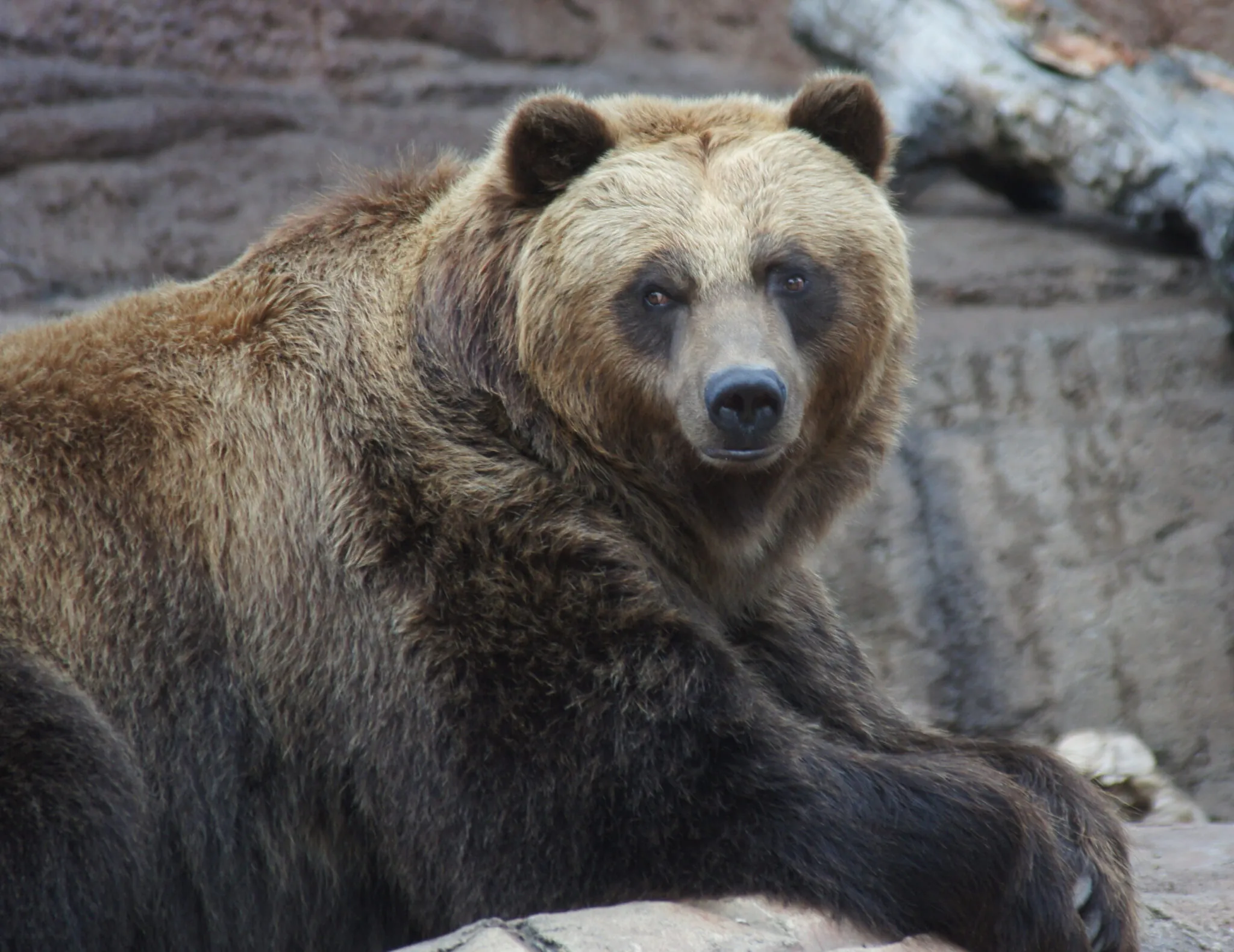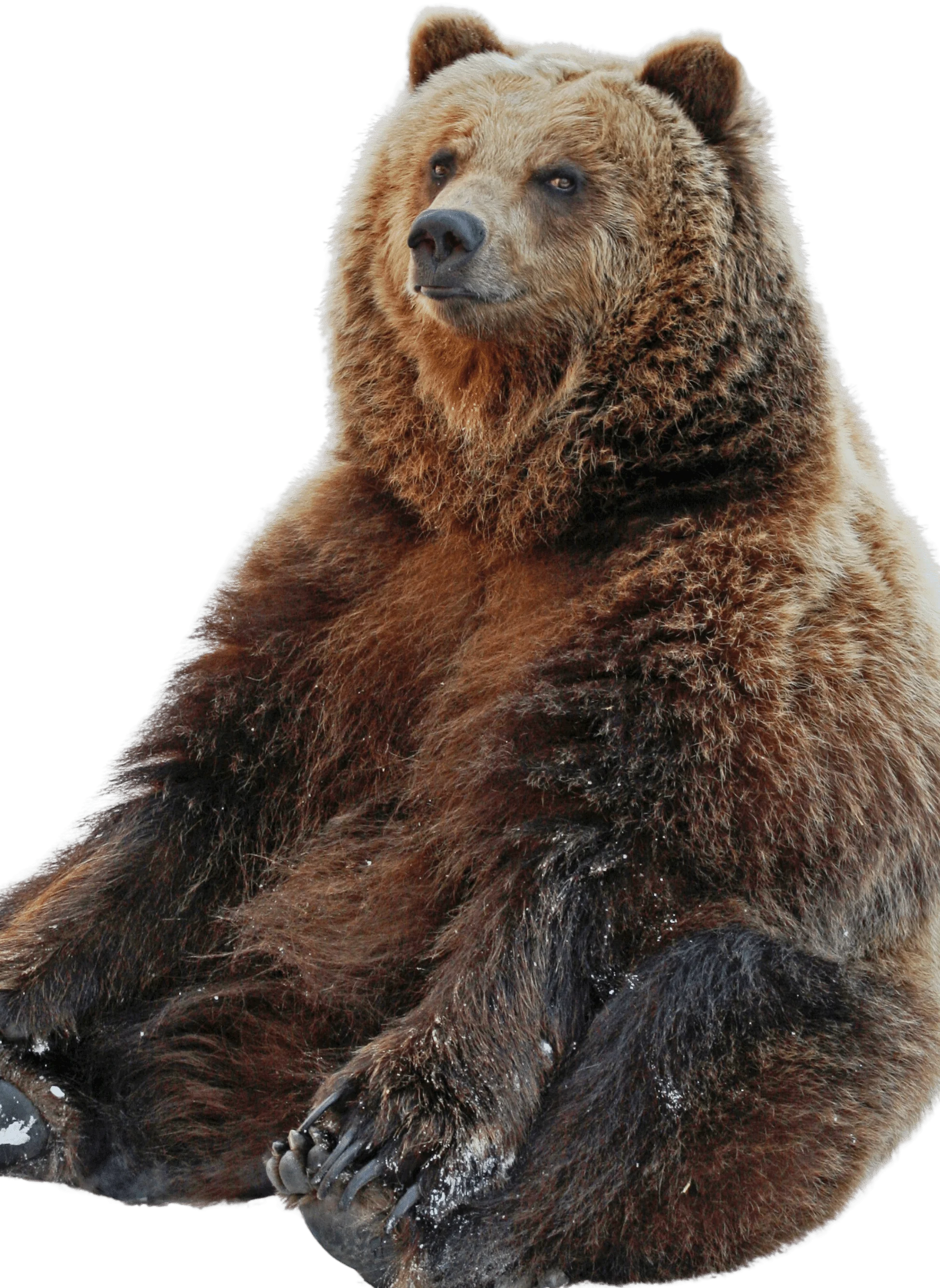-
Menu
- Plan Your Visit
- Meet The Animals
- Check Out Events
- Memberships
- About The Zoo
- Support the Zoo
- Conservation
- Education
- Groups & Private Events
- Zoo News
- Contact
- Indianapolis Prize
- Global Center for Species Survival
- Schedule
- Donate
- Membership
- Tickets

- Plan Your Visit
- Meet The Animals
- Check Out Events
- Memberships
- About The Zoo
- Support the Zoo
- Conservation
- Education
- Groups & Private Events
- Zoo News
- Contact
- Indianapolis Prize
- Global Center for Species Survival

Brown Bear
Ursus arctos
About
Brown bears, also called grizzly bears, are famous for their large size—and their appetite! They are omnivores, which means they will eat nearly anything that is easy to find. They eat up to 90 pounds of food per day in autumn to prepare for winter, when they become less active and lose half their body weight. They can smell a rotting carcass more than 2 miles away!
Brown bears are about 4 feet tall at the shoulder, rising to 8 feet tall when they stand on their hind legs. They’re fast, too, moving up to 30 miles per hour when they run. Males can weigh more than 1,000 pounds. Females are usually smaller. They live about 25 years in the wild.
Cubs—usually two or three at a time—are born in the winter and stay with their mother in her den. She will raise them alone until they are 2–3 years old and can find their own food.

Conservation
In North America, brown bears live in the forests, meadows and tundra of Alaska and northwestern Canada, but they are also found across Asia, the Middle East and Europe. Their range is smaller than it was in the past. Habitat loss and conflict with humans threaten some of the populations, but there are no major threats to this species. You can help brown bears and other wildlife when you’re spending time in nature by following Leave No Trace Principles.
Brown Bear Chat
WHERE ARE THEY AT THE ZOO?


